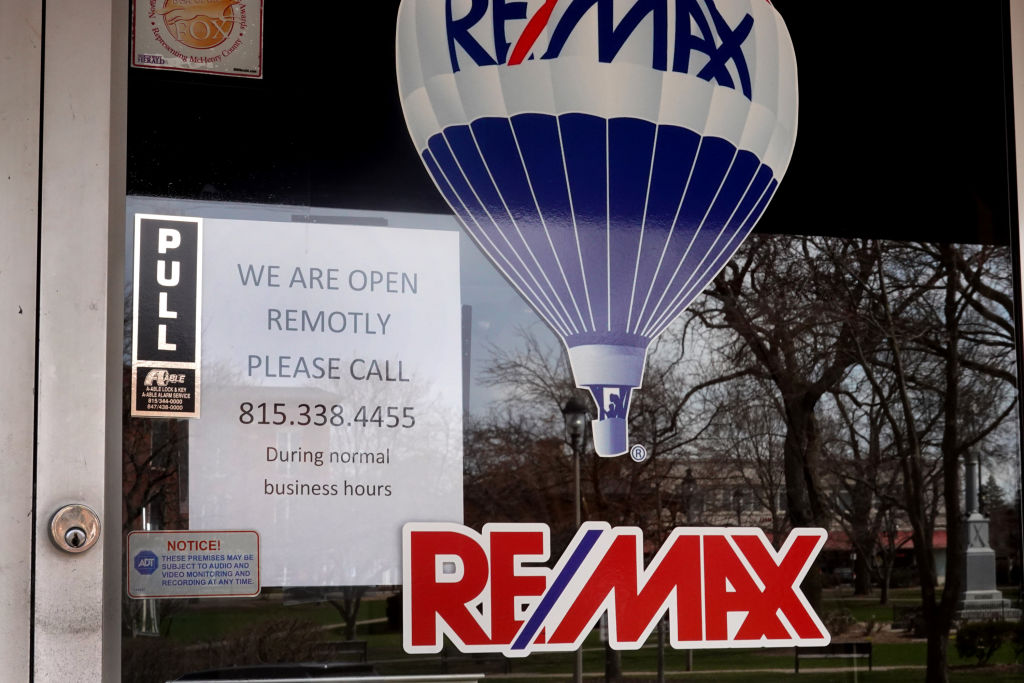Emily Grossberg’s hunt for a bigger apartment changed dramatically when the coronavirus pandemic struck in mid-March.
Determined to move this summer — and to stay safe while doing so — the 26-year-old news producer and her boyfriend shifted their entire search to cyberspace. When they finally found a listing worth investigating, they messaged the agent. The agent texted back a link to a video tour.
The five-minute clip, shot on an iPhone, was far from high-budget. But after watching a walkthrough of the synagogue-turned-loft at 701 West Buckingham Place, along with a prerecorded Q&A video with the former tenants, Grossberg signed a lease from the comfort of her own apartment.
When she moves in June, it will be her first time setting foot in her new home.
“We fell in love with the apartment right away, but it’s still a really big gamble,” Grossberg says. “I’ve definitely woken up with night sweats thinking, ‘Did I just really screw up?’ ”
The age of social distancing, which set in just a month before Chicago’s busiest moving season, has done more than change the process of touring apartments: It’s altered the calculus of shopping for a home altogether.
Originally, Governor Pritzker’s March 20 stay-at-home order declared real estate an essential service, leaving agents free to show properties at will. But further guidelines set by the Illinois Department of Commerce and Economic Opportunity on April 1 banned showings of occupied rentals statewide. You can still tour vacant and owner-occupied homes, but showings are limited to four people or less — including the broker.
Due in large part to these restrictions, online tours are the new normal. Nationally, one third of home tour requests in the first week of April were for agent-led video chats, according to a new report by online brokerage Redfin.
For some local agencies, that number is even higher.
“We’ve gone from almost zero percent to 40 percent in two months,” says Eddie Mateja, a Downers Grove–based broker with Baird & Warner.
He and other brokers have also noticed that interested parties are increasingly willing to buy or lease using only their electronic devices. Until a month ago, “sight-unseen” transactions were rare. Not anymore.
At Spaces Real Estate in Lake View, nearly half of April leases were mediated through a combination of Zoom, Facebook Live, FaceTime, and other apps — a sharp increase from the first three months of 2020.
“We had five of them in one building alone,” says Nicolette Rassano, a Spaces account manager. “It’s a massive shift.”
To a lesser degree, it’s also happening in the housing market, where the financial risk is much greater.
“We had an agent do a showing with an out-of-state buyer over FaceTime and they made an offer on March 18,” says Mateja. “They didn’t see even see the property themselves until April 8.”
That may sound hassle-free — but many experts say would-be buyers and renters should think twice before making sight-unseen housing deals.
“Pictures can lie,” says Stephen Brobeck, a senior fellow at the Consumer Federation of America who specializes in real estate. “There’s certainly a difference between looking at still photos and directing a realtor with a handheld phone through a house tour, but there are plenty of things that you can only learn by being there yourself.”
Firstly, video can fail to capture the subtle or subjective visual aspects of a home, like minor wear and tear. You may miss those tiny cracks in the ceiling. On the flip side, that bright light in the living room may be the trick of a camera filter.
Furthermore, even at its most high-definition, video can only hope to engage one of the five senses. What does the place smell like? How’s the water pressure? Does the air-conditioning blow cold enough? And how about those upstairs neighbors?
“Video can’t really capture the feeling of a neighborhood or the vibe of a house,” says Mateja. “Real estate is always an emotional decision, so you have to touch and feel it in order to see if it’s a place you want to live in.”
Brobeck also points out that most virtual tours are conducted by listing agents who ultimate serve the seller or property manager's best interests, not the buyer's.
“If you can’t go inspect a place yourself, you want to have a fiduciary there,” says Brobeck. “You’re more likely to receive critical input from an agent loyal to you instead of one loyal to another party.”
The smartest way to use virtual tours, experts say, is to help narrow your choices. Look at several places you’re interested in on Zoom, and then — carefully — tour the best of the best in person.
“It’s hard to find the time to do a ton of these appointments in person,” says Daniel Close, an agent with Redfin. “I think virtual access is here to stay because it’s a reasonable middle ground for all of the stakeholders involved.”



